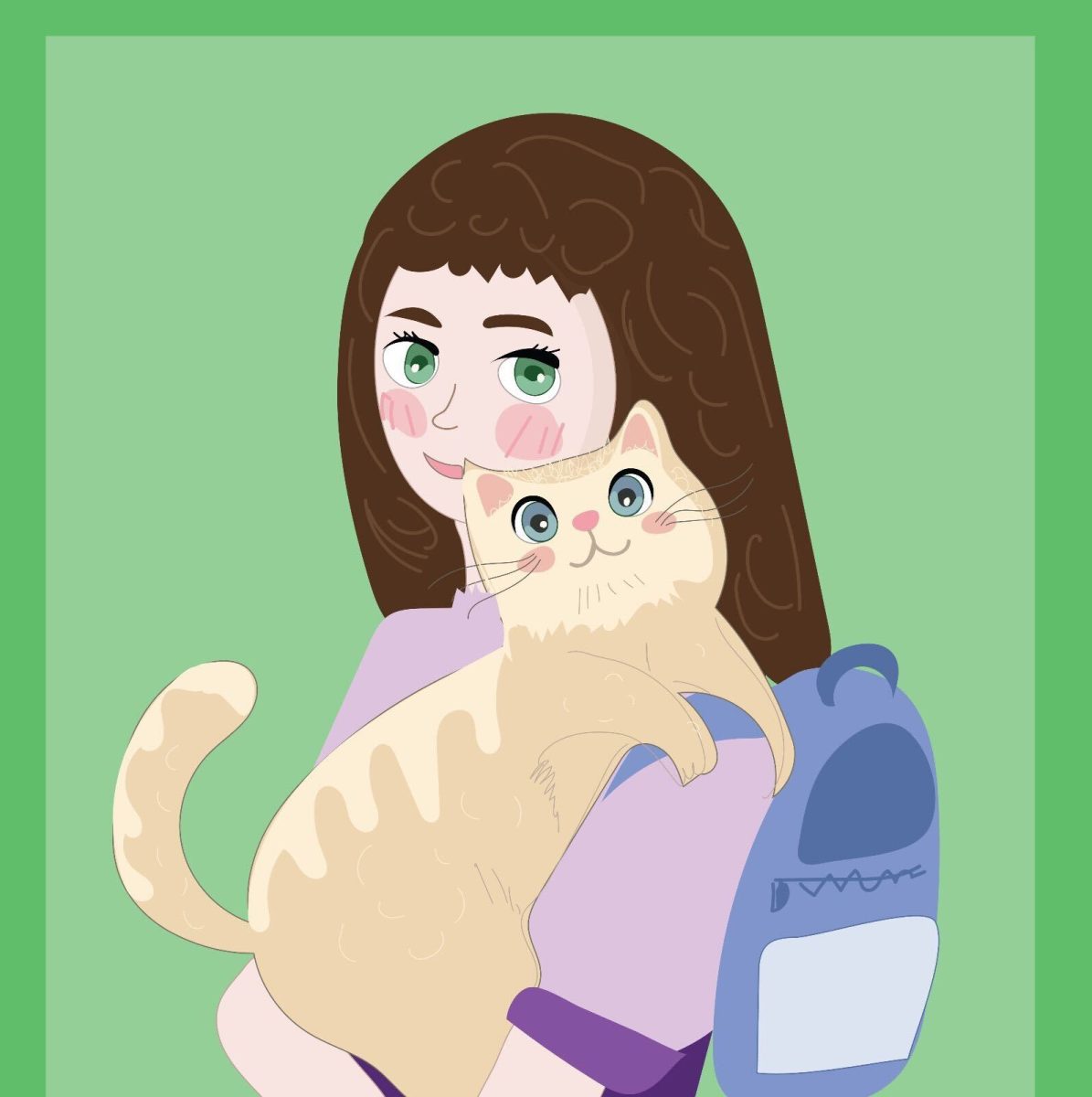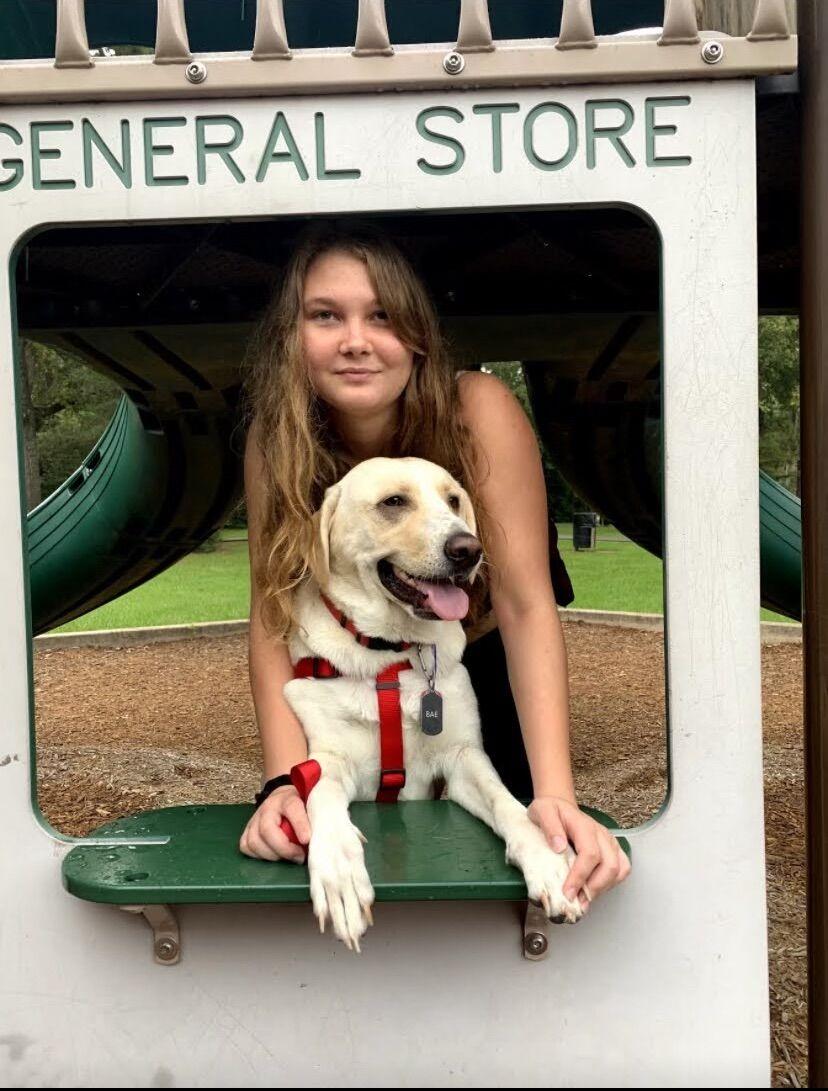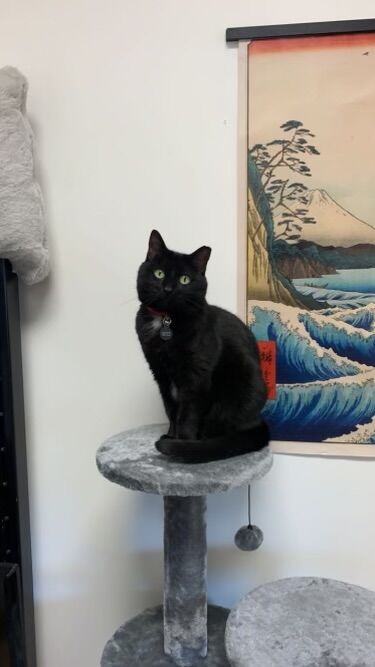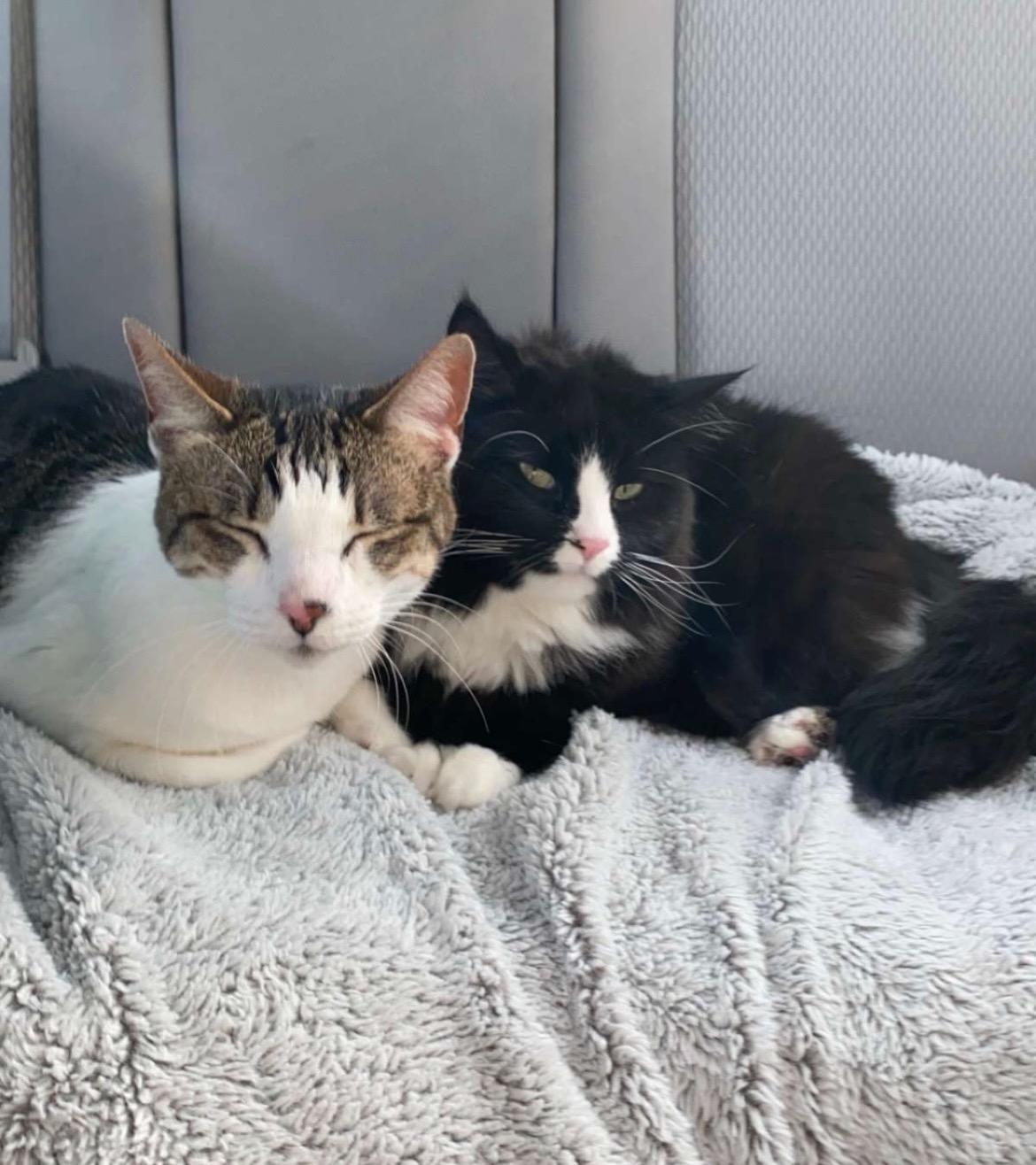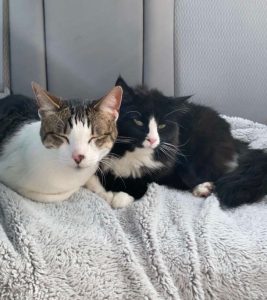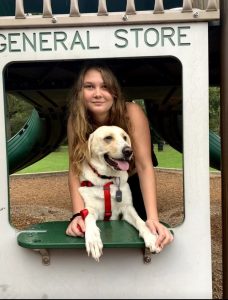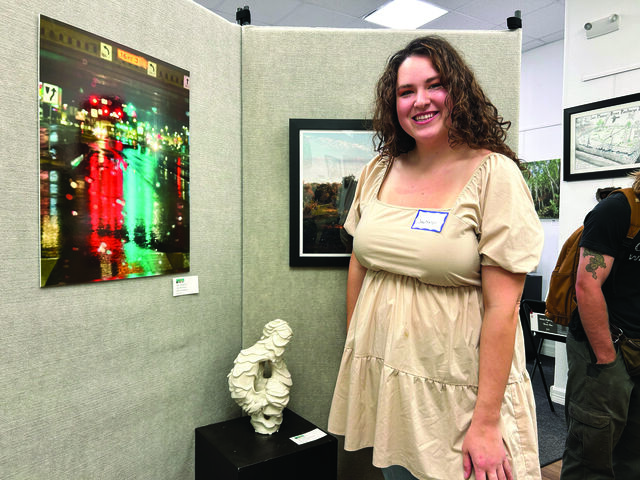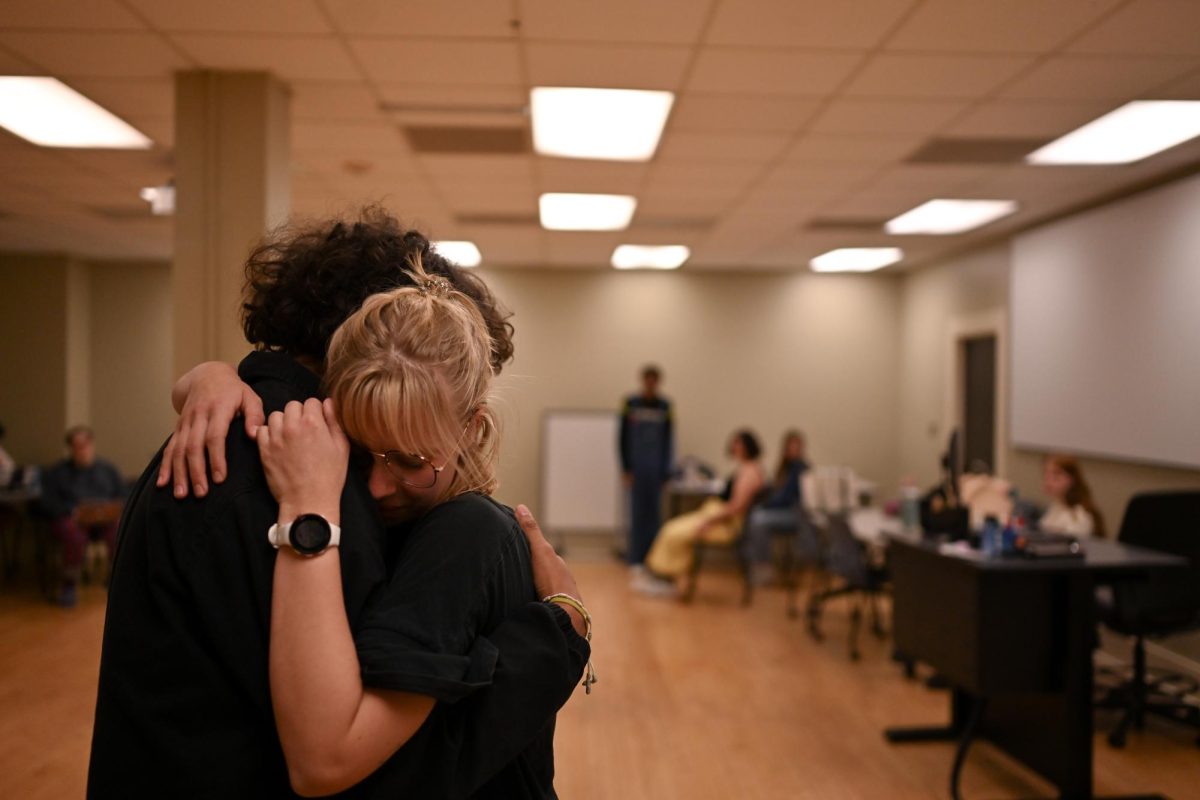College students love their pets, whether it is the family dog they are missing at home, the apartment cat they adopted with their roommates or the pet store fish they bought on a whim. No connection compares, however, to students and their emotional support animals.
“You kind of personify your ESA [emotional support animal], and it’s like it’s not an animal that just like, exists like a pet or something, but it’s more like, ‘this is a human being that understands me, and I understand her,'” Grace Alter, a marketing senior, said.
Alter is the owner and companion of Onyx, an 11-year-old black and white tuxedo cat who has lived with Alter for two years. Alter registered Onyx as her ESA with the Office of Disability Services (ODS) last year when she lived in Chautauqua Hall.
Onyx has been Alter’s comfort and security during some of the trying times in her life. She said Onyx was there for her through things like familial problems, mental health diagnoses and the transition from homeschooling and community college to university life at Texas State.
“Don’t stop yourself from having the college experience because you’re relying on an animal like …” Alter said. “It should be an asset rather than something holding you back.”
ESAs that live in Texas State residence halls are considered accommodations, according to Director of ODS, Gavin Steiger. To register an animal as an ESA to live in a dorm, a student must submit proper documentation to ODS including veterinarian records and a letter confirming that the animal is for emotional support.
“We’re looking for something from a qualified health care provider to validate that this animal was truly an emotional support animal and not necessarily a pet,” Steiger said.
ESAs are regulated under the Fair Housing Act, unlike service animals which fall under the Americans with Disabilities Act. As a result, ESAs on the Texas State campus are restricted to residential dwellings and are not allowed outside the dorm or in communal spaces.
Alter said living with a cat in a dorm helped her form friendships in her first year at Texas State. Onyx was one of her go-to conversation starters when meeting new people.
“At the dorms it was really fun because it was kind of like you were the mascot of the floor essentially,” Alter said. “So everyone knew I had a cat with me and we had a lot of fun visitors … I made a lot of friends through her which was really fun. I even had a couple people that I helped get an ESA on campus because they saw that I had her.”
Under the Fair Housing Act, housing providers in Texas cannot deny an ESA and cannot charge additional rent or pet fees to the owner. Taylor Price, a criminal justice senior, registered her cat Paisley as her ESA at the advice of her therapist so that she did not have to pay her apartment’s pet rent.
Price adopted Paisley, a black domestic medium hair, from the San Marcos Regional Animal Shelter along with Wanda, a white and brown tabby cat, last year. Although Paisley is the registered ESA, Price said the label does not define her connection with both cats.
“I love them both but I think Wanda just likes people. Paisley is very, you know, kind of wants to be on her own. Like when we have people over, she kind of just stays by herself but I mean, I have a genuine bond with both of them,” Price said. “It kind of does make me feel nice knowing that Paisley’s my ESA and when she does decide that she wants to like, you know, be cuddly, it’s just cuter.”
According to Steiger, as of April 5, there are 128 requests to register an ESA on campus. He said ODS would have 50-60 ESA requests at a time before the pandemic.
“As a result of COVID, I think that there were a lot of individuals that were dealing with mental health issues because they had felt isolated, felt anxious, felt depressed with not having as much human contact as they once had,” Steiger said.
Alter said some of the challenges of having Onyx in the dorm included not being able to grab her while drill sirens were going off in the building or when the hall flooded, and she had to evacuate.
There is no box in the Texas State roommate matching portal that Alter could check to tell her dorm roommate that she was bringing a cat. Luckily, she said, it all worked out. For Tristan Walters and her emotional support dog named Bae, however, living in a dorm was unpleasant.
“Texas State [has] a lot of regulations on ESAs,” Walters, a criminal justice sophomore said. “It took a lot of paperwork and even though … I was on top of the paperwork months ahead of time, it still took three or four days for the paperwork after I got there because I had to go like do meet and greet with an RA.”
Walters moved into her dorm on her own and said she had to drive three hours home to Magnolia, Texas, to pick up Bae, a 5-year-old golden retriever and bring her back to her dorm in Jackson Hall.
In Jackson Hall, Walters encountered problems like space issues, shedding and worrying about her ESA’s safety. She moved into Bobcat Village during her second semester and said it was a better experience for Bae.
Bae is a washed-out service dog, meaning she was deemed unfit to continue working as a service animal. Walters said she became too aggressive with other animals during her training.
Despite this, Walters said Bae still has “tasks” as an ESA including deep pressure therapy to help her anxiety.
Walters and Bae live in an apartment with four roommates and other pets now. Last July, Walters adopted a Calico cat named Twix from the San Marcos Regional Animal Shelter so that Bae could have a companion.
Walters had no friends or family to rely on during her transition to Texas State but said Bae was the companion she needed not to feel lonely.
“She also just gives me the feeling that you know, when I’m home by myself, I’m able to be home on myself because she’s with me, so I don’t feel like I’m actually alone,” Walters said.
It’s easier to depend on an ESA than a human being, Alter said. She takes comfort in knowing she can express emotions and not cause anyone distress when she complains about a school essay or breaks down after a bad day.
“When everything around you is kind of falling apart, you know, you can rely on your ESA because she doesn’t know,” Alter said. “She has no idea what’s going on. She’s just living her life.”
Categories:
Emotional support animals comfort students
Sarah Hernandez, Managing Editor
April 12, 2023
0
Donate to The University Star
Your donation will support the student journalists of Texas State University. Your contribution will allow us to purchase equipment and cover our annual website hosting costs.
More to Discover



